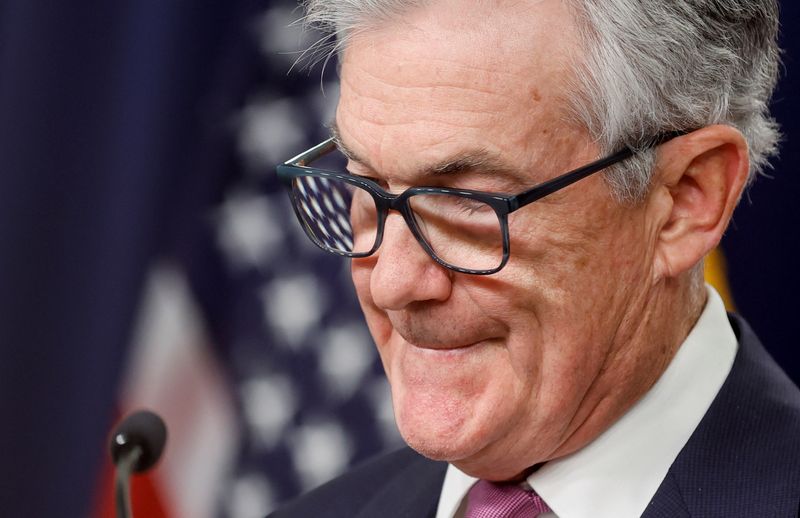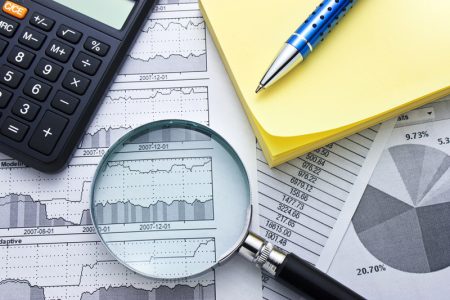By Yasin Ebrahim
Investing.com – Rate cut bets took a big leap forward this week, with a March cut now more likely than not as the deflationary winds are expected to continue to blow through the economy, forcing the Fed to pivot into easing mode to ensure the economic landing from the fastest pace of rate hikes in four decades is soft rather than unnecessarily bumpy.
“We expect that the continued deceleration in inflation over the next few months will motivate the Fed to cut the funds rate 25 bps at the meeting on March 20,” Jefferies said in a note Friday, as the Fed will be wary of the risk a ‘higher for longer’ rate regime poses for a potential soft landing.
The odds of a March cut jumped to 57.9% from 21.6% the prior week, according to Investing.com’s
First cut will blunt real rates, keeping soft landing insight
The need for speed on rate cuts will likely be driven by concerns that a real fed funds rate – adjusted for inflation and a more accurate gauge of how much it costs companies to borrow money – running too hot could bring down growth by more than expected, potentially tipping into recession.
“The first cut will be motivated by an attempt to make sure that the real fed funds rate does not increase too much, and does not apply undue pressure on the economy,” Jefferies adds, forecasting that deeper rate cuts will follow to “prevent significant increases in the unemployment rate.”
“We expect 50 bp rate cuts at the following 4 meetings, with the funds rate bottoming at 2.75-3.0% in September,” Jefferies said. That is well below the Fed’s projections for rates to end 2024 at 5.1%.
Economic strength to fade forcing fed into rescue mode
But the recent wave of positive economic data including the upward revision on Q3 GDP to a 5.2% annualized pace has some struggling to determine how the economy is likely to fall into the kind of trouble that will demand a Fed rescue.
Deutsche Bank, however, believes the full impact of the rate cuts delivered so far, the fastest in more than four decades, is yet to leave big dent in the economy.
“With the lagged impact of rate hikes taking effect, we can already see clear signs of data softening,” {{0|Deutsche Bank said, pointing to the October monthly jobs report that showed an uptick in the unemployment rate to highest level since January 2022, a pick-up in credit card delinquencies, and a rise in high yield defaults.
Others agree, and expect that strength in consumer spending, which has continued to confound economists, and underpin economic growth, will likely wane in the weeks ahead.
The turning point in the labor market, which has supported consumer spending, will likely come the end of this year or early 2024, Jefferies estimates, as businesses eventually begin to cut jobs to alleviate costs and lessen margin pressures.
“Businesses will struggle to pass on further price increases to an increasingly strained consumer, and margins will fall as inflation slows, leading to layoffs eventually,” Jefferies in a Thursday note.
Powell pushback fails to deter pivoteers
This newfound optimism among the pivoteers stood firm even as Fed Chairman Jerome Powell on Friday attempted to curb the growing enthusiasm on rate cuts, warning that it would be” premature” to bet when policy might ease.
Powell’s remarks, however, weren’t the telling blow to the pivoteers’ hopes for sooner rather than later rate cuts during a week in which inflation not only continued to cool, but his colleague Fed governor Christopher Waller entertained the idea of rate cuts.
The pushback from Powell was also watered down by further signs the Fed is keeping a more watchful eye on the risk of doing too much – a risk that has seemingly forced them into their current careful approach and encouraged them to keep rates on hold since July.
“Having come so far so quickly, the FOMC is moving forward carefully, as the risks of under- and over-tightening are becoming more balanced,” Powell said in remarks on Friday.
While the Fed isn’t quite ready to break out into a full victory dance on inflation, members are now nonchalantly tapping their feet to the tune of cooling inflation as they head off into the ‘quiet period’ ahead of the December 12-13 meeting.
Read the full article here













